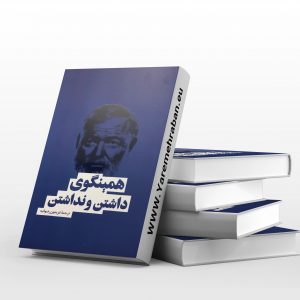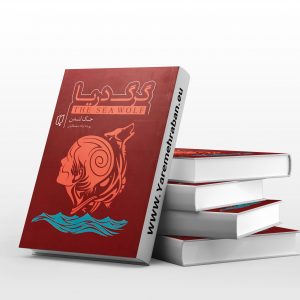Description
Blaine Harden’s 14Escape from Camp is based on the life of Shin Dong Hyuk, who was born in North Korea’s most notorious concentration camp and is the only person who has escaped.
Introducing the book Escape from Camp 14
In addition to telling the story of Hyuk, Blaine Harden documents the story of North Korea and the plight of many North Korean fugitives in South Korea in his book Escape from Camp 14. The work sold well after its release and angered North Korean officials.
Many books have been written about North Korea, but one of the most important and astonishing is the escape from Camp 14. The story of a man who is born in a camp of political prisoners and lives in the horrible and terrifying atmosphere of the camp, makes him a dangerous spy and a person devoid of all human emotions and feelings; So much so that he sends his mother to a stick to get food.
Captivity camps in North Korea have been around for years. People born and raised in these camps can never escape them. So far, no one but Shin Dong Hyuk has succeeded. In this work, Blaine Harden tries to reveal the secrets of one of the most repressive governments on earth, using the astonishing story of Shin’s imprisonment and escape.
The author’s fascinating and influential writing skillfully depicts this devastated society, and throughout the book focuses on the extraordinary young man who grew up in the safest prison, the most secure government in the world. Escape from Camp 14 is a beautiful story about resistance, courage, salvation and hope.
We have all heard and read about human rights abuses in North Korea many times before, but the grim picture that Blaine Harden shows you in this book is far more shocking than that of a Korean citizen. A country that has an atomic bomb but has been sanctioned by all the countries of the world and leaves no way out for its people. It can be said that you have never read any novel that has influenced this work.
Everyone knows Kim Jong Il, but not his country. The country is hungry, bankrupt and equipped with nuclear weapons, and about 150,000 to 200,000 people work as slaves in the camps of its political prisoners.

In part of the book Escape from Camp 14, we read:
The famine and floods of the mid-1990s devastated the centrally designed economy. The government’s public distribution system, which had provided food to most North Koreans since the 1950s, collapsed. Fearing that they would starve to death, the North Koreans exchanged goods for goods, and this grew rapidly among them, and the number and importance of private shops increased. Nine out of ten families traded goods to survive.
More and more North Koreans were crossing the border into China to work, trade, buy and sell, and fly to South Korea. Neither China nor North Korea provided statistics, but the rate of economic migration is estimated at tens of thousands to four hundred thousand people.
Kim Jong Il tried to control the chaos and chaos. His government created a new network of detention centers for businessmen traveling without a permit. But these people could buy their freedom from the police and the hungry soldiers with biscuits and cigarettes. In large cities, train stations, roofless markets, and narrow alleys were filled with starving people. The many orphans found in these places became known as “stray sparrows.”
Shane did not know this yet, but the capitalism of the masses, the wandering trade, and the pervasive corruption were creating gaps in the police government that besieged Camp 14.
Food aid from the United States, Japan, South Korea, and other donors alleviated the famine by the late 1990s, but indirectly and accidentally gave life to women shopkeepers and travel agents, so that in the future Shin could flee to China for fake food and identity. Give and guide.
1- Introducing the book 14Escape from Camp on YouTube
2- Introducing the book 14Escape from Camp in Aparat














Reviews
There are no reviews yet.